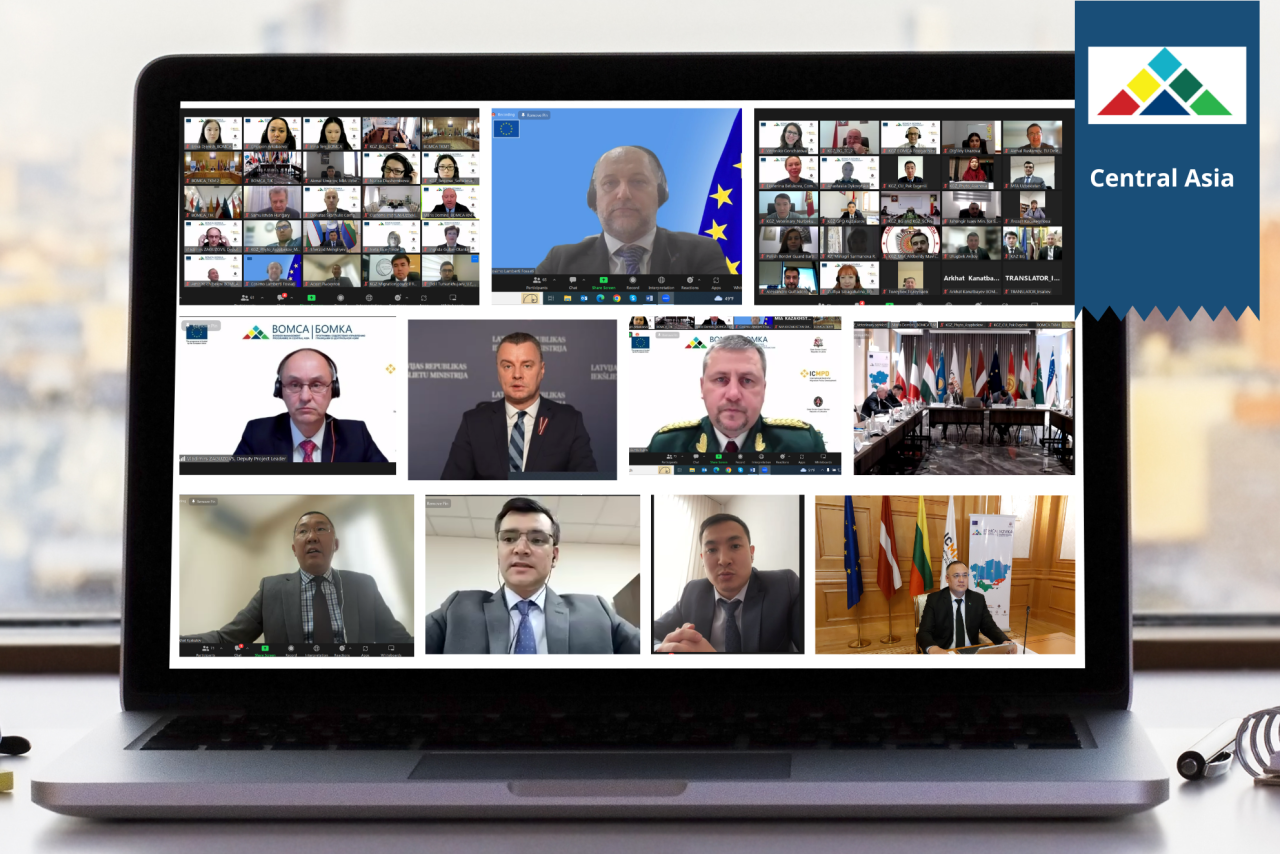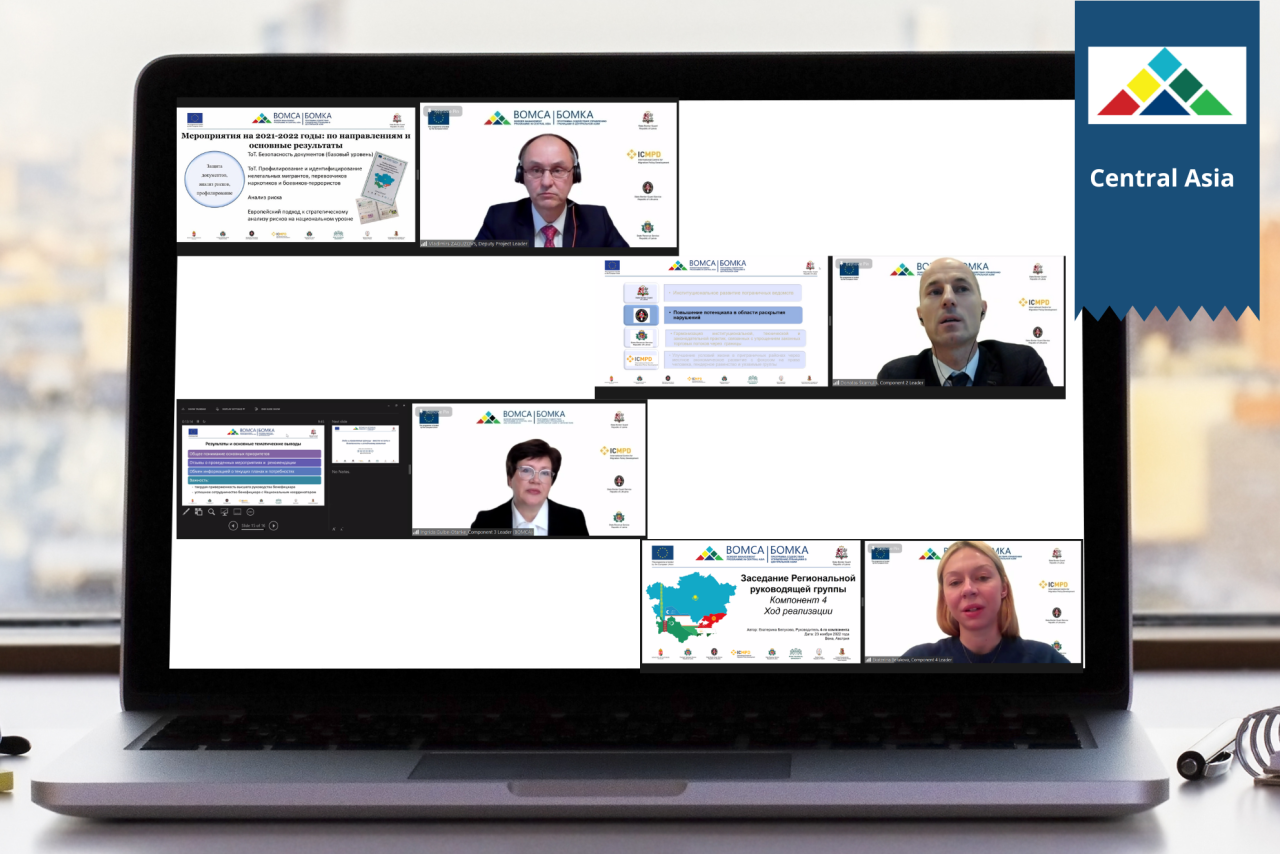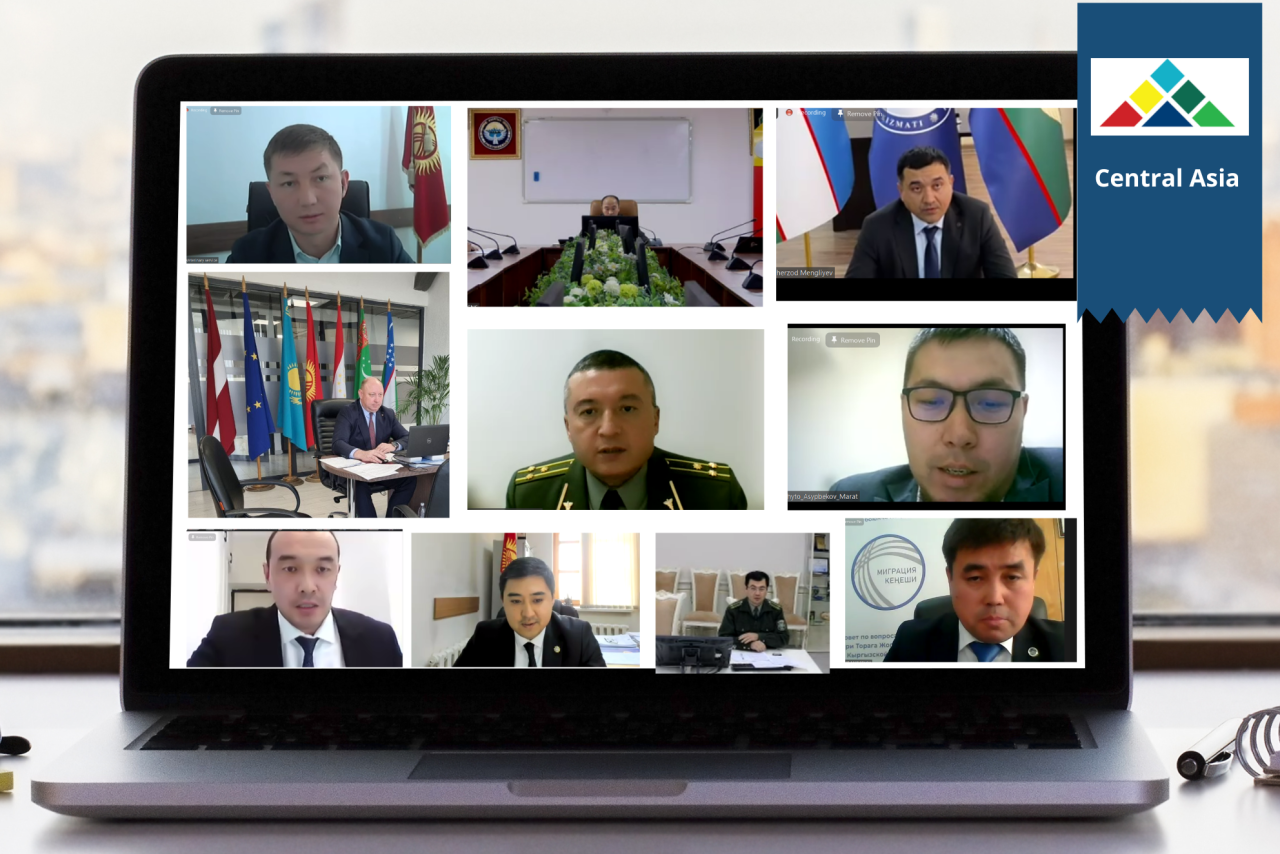On 23 November, the Border Management Programme in Central Asia – phase 10 (BOMCA 10) held its 2nd Regional Steering Group (RSG) meeting. This event serves as a steering instrument of the programme, which defines and monitors the strategic direction of the programme implementation.

For this purpose, the Steering Group members, represented by the BOMCA 10 Consortium of implementing partners, state beneficiary-institutions from all five countries of Central Asia, and donor-representatives from the Delegations of the European Union in Central Asian states, convened and jointly reviewed the Programme’s overall progress since December 2021, achievements and challenges to date, as well as discussed the regional work plan for the next year.
In the welcoming speech, Project Manager of the Delegation of the European Union to the Kyrgyzstan Cosimo Lamberti-Fossati underlined that:
“The Programme has been specifically linked to a number of EU objectives set forth in its strategic documents and it has become an absolute flagship initiative in the region and one of the longest programmes funded by the EU worldwide. The application of the Integrated Border Management principles, as well as the exchange of know-how and best practices, both with the EU Member States and within the Central Asian region, are among the cornerstones of the Programme. The European Union is convinced that this kind of strengthened regional cooperation offers the best tools for addressing common challenges, and it is also instrumental in ensuring regional security and stability in Central Asia”.

Recognising the fundamental role of the first year for implementation, BOMCA 10 Project Coordinator Guntis Pujats stressed:
“As we review the first results, it’s important to note that this would not be feasible without the main precondition – commitment of our national counterparts to development. This commitment multiplied by effective cooperation with the implementing consortium allows us to already to talk about achievement and success stories and we do look forward to seeing more of them towards the end of the project in 2025”.

Since October 2021, BOMCA 10 has implemented 121 activities in the region across four thematic areas – institutional development of border control agencies, improvement of detection capacities, facilitation of trade, and improvement of cross-border cooperation. Results of these activities include 68 of documents of various nature to guide national counterparts to advance and modernise practices across various sub-topics of the mentioned areas. In the next calendar year BOMCA 10 will continue to work across all four thematic areas and the 2nd RSG confirmed priority activities and targeted results under these areas to be addressed at the regional level.
